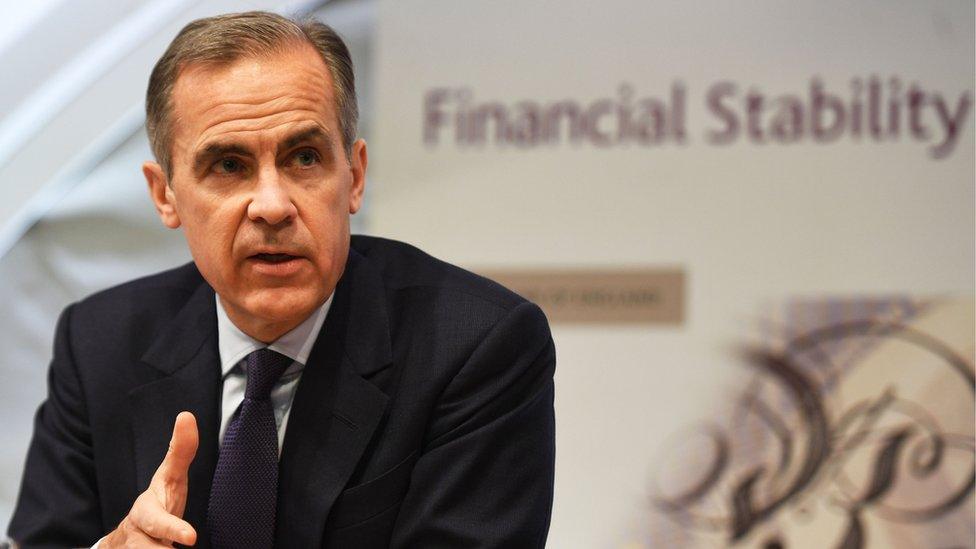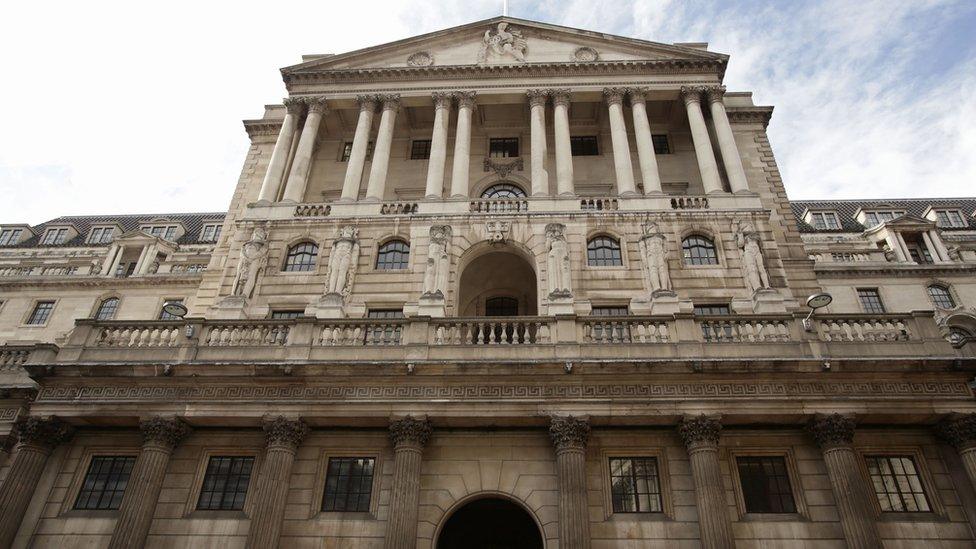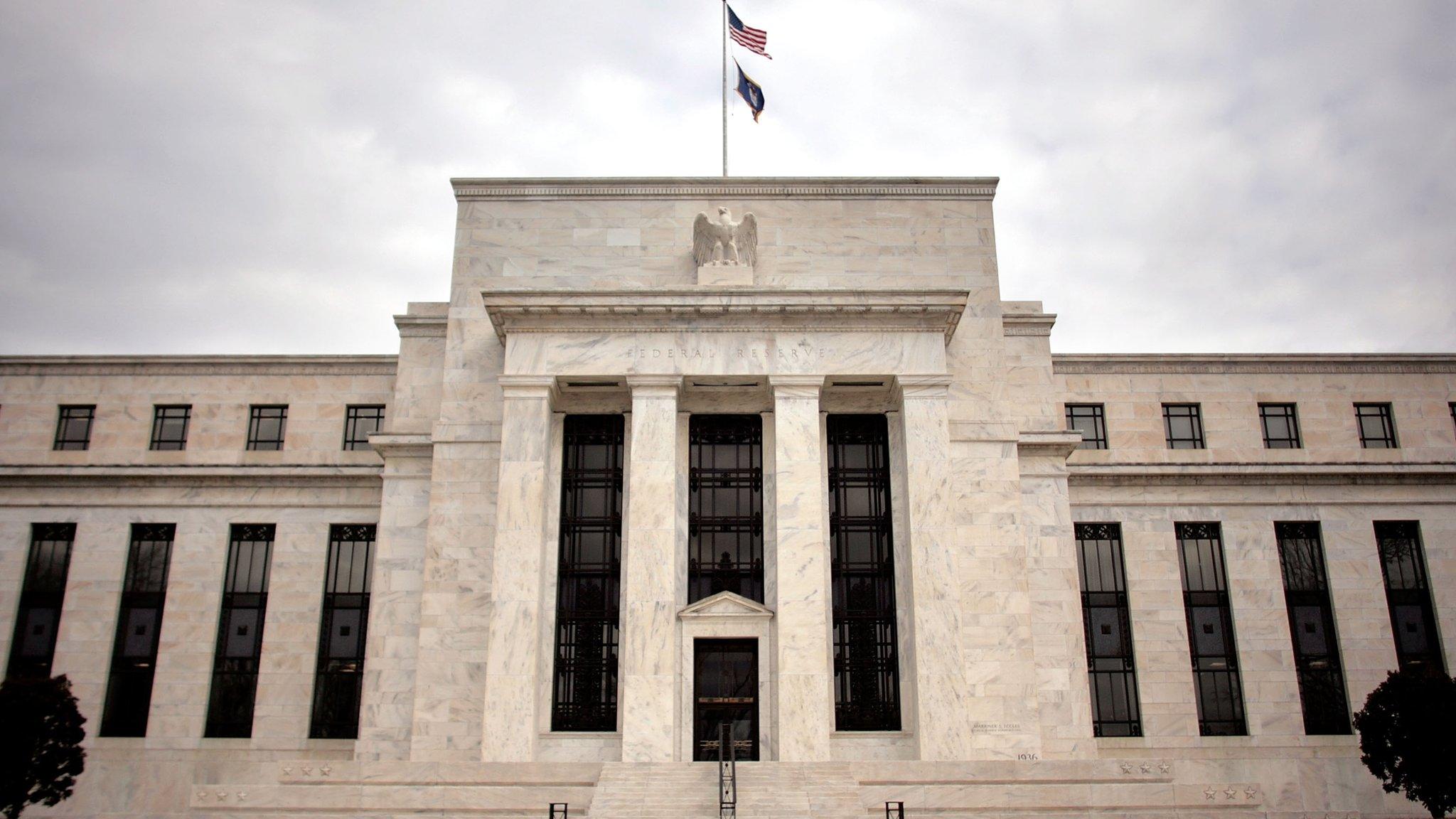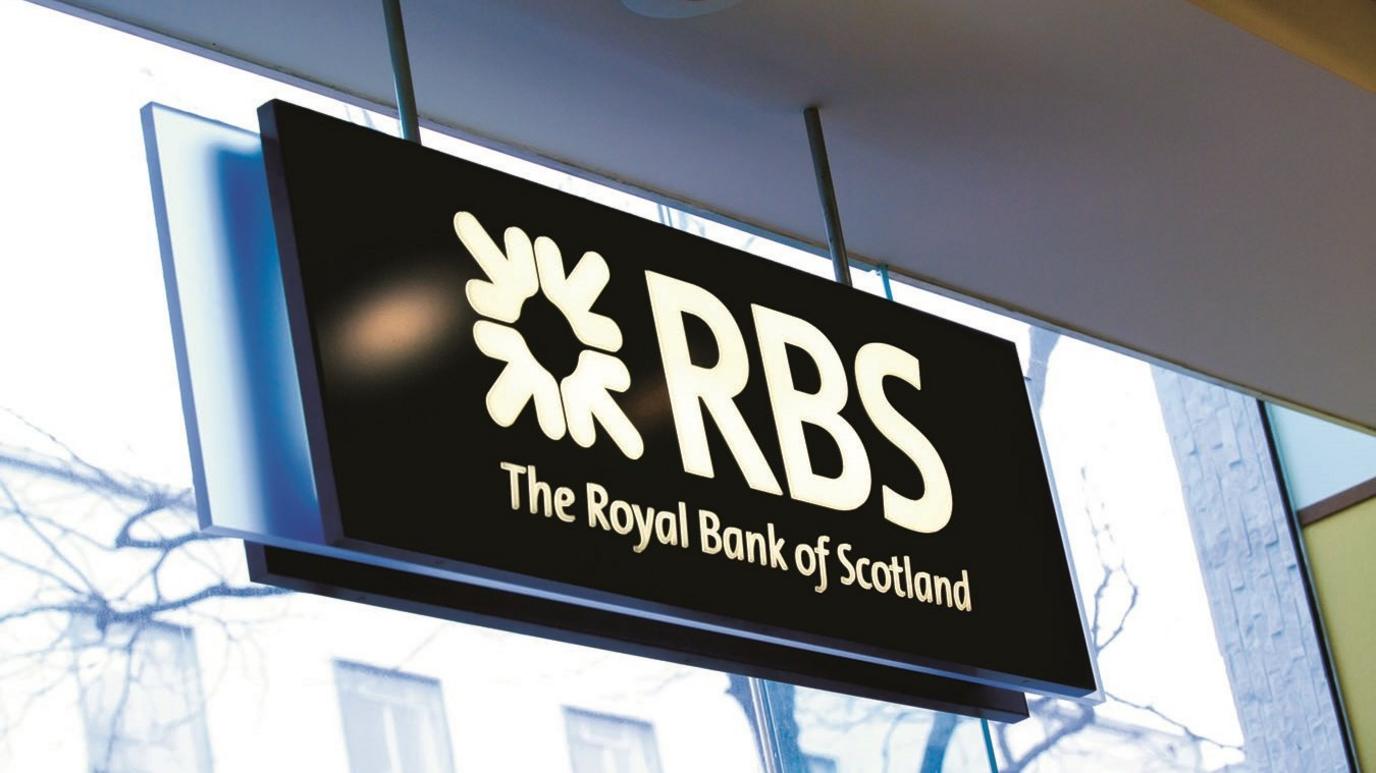UK banks could handle 'disorderly Brexit'
- Published
- comments

Mark Carney became governor of the Bank of England in 2013
The UK's banks could cope if Britain leaves the European Union in a "disorderly Brexit" in 2019, the Bank of England has said.
For the first time since the financial crisis, all of the UK's biggest lenders have passed the Bank's stress tests.
The tests of adverse economic scenarios discover if the banks could continue to lend money to support the UK economy.
Bank governor Mark Carney said they would be able to, even in "the unlikely event" of no deal when Brexit happens.
Mr Carney said that all parties were working to avoid the situation, but warned that if the UK did leave in a "sharp, disorderly" way there would be some economic "pain" for households and businesses.
The worst case scenario the Bank imagined in the stress tests included a 33% fall in house prices, a rise in interest rates from 0.5% to 4% within two years, and the unemployment rate rising to 9.5% from its current rate of 4.3%.
Insurance worries
The tests flagged up other Brexit concerns.
Six million UK customers buy insurance policies from EU companies and, after Brexit, those firms would not have permission to collect premiums or pay claims.
The same is true of the financial insurance that banks buy and sell to each other. Here the numbers are staggering - the notional value of those contracts are £26 trillion.
Without legislation from both the EU and the UK they may be hard to enforce and that would create financial instability.
The Bank of England offered a checklist of items to mitigate the impact of Brexit which included:
A clear EU-UK regulatory framework in place
Timely agreement on an implementation period
Legislation on both sides to preserve continuity of existing cross-border insurance and derivative contracts
Michael Snapes, financial services director at PwC, said: "There is some comfort to be had in the knowledge that the UK banking system is strong enough to withstand a severe economic deterioration.
"The results suggest that the major UK banks may finally be emerging fully from their post-crisis downturn."

Analysis: Simon Jack, BBC business editor

The headline of the report sounds comforting - the UK financial system is strong enough to withstand a "disorderly Brexit".
By that, the Bank means an exit from the EU without a trade deal to replace our current relationship, the introduction of tariff and regulatory barriers and the potential forced relocation of people and businesses from the UK to the EU.
So everything is all right then? Er, not quite.
What the Bank is actually saying is that the economic shock to the system would be no worse than the economic tests it puts banks through anyway.
These economic tests are severe. A 33% fall in house prices, a more than doubling of the unemployment rate, a 25% drop in the pound and a rapid rise in interest rates from 0.5% to 4%. This is a dire economic scenario.
All the Bank is saying is that a disorderly Brexit would be no more apocalyptic than that. That is not much comfort.

'Pockets of risk'
The Bank's Financial Policy Committee (FPC) also said it was increasing the amount that banks had to hold in reserve in case of an economic downturn.
Mr Carney said the growth of consumer credit in the UK had created "pockets of risk".
He said that domestic financial risks and the potential for new global economic issues meant banks should be prepared for further losses.
Mr Carney said the FPC was "taking action to ensure the financial system is resilient to a very broad range of risks".
Both Barclays and RBS, who did not pass the stress tests in a snapshot of their businesses at the end of 2016, had improved their financial positions since then, said the Bank.
As a result, both were deemed to have passed the stress tests overall.

Lloyds, HSBC, Santander, Nationwide and Standard Chartered were the other lenders who took part.
Looking at this year's results, RBS's chief financial officer, Ewen Stevenson, said: "We continue to make progress towards the stress-resilient bank we aspire to be and 2017 represented another year of material improvement.
"Until we have resolved our remaining major legacy conduct issues and non-core portfolio interests, we will continue to show stress test results weaker than our long term targets."
In a statement, Barclays said: "Barclays was not asked to submit a revised capital plan by the Bank of England in light of the steps already taken during 2017."
- Published20 November 2017

- Published28 June 2017

- Published30 November 2016
